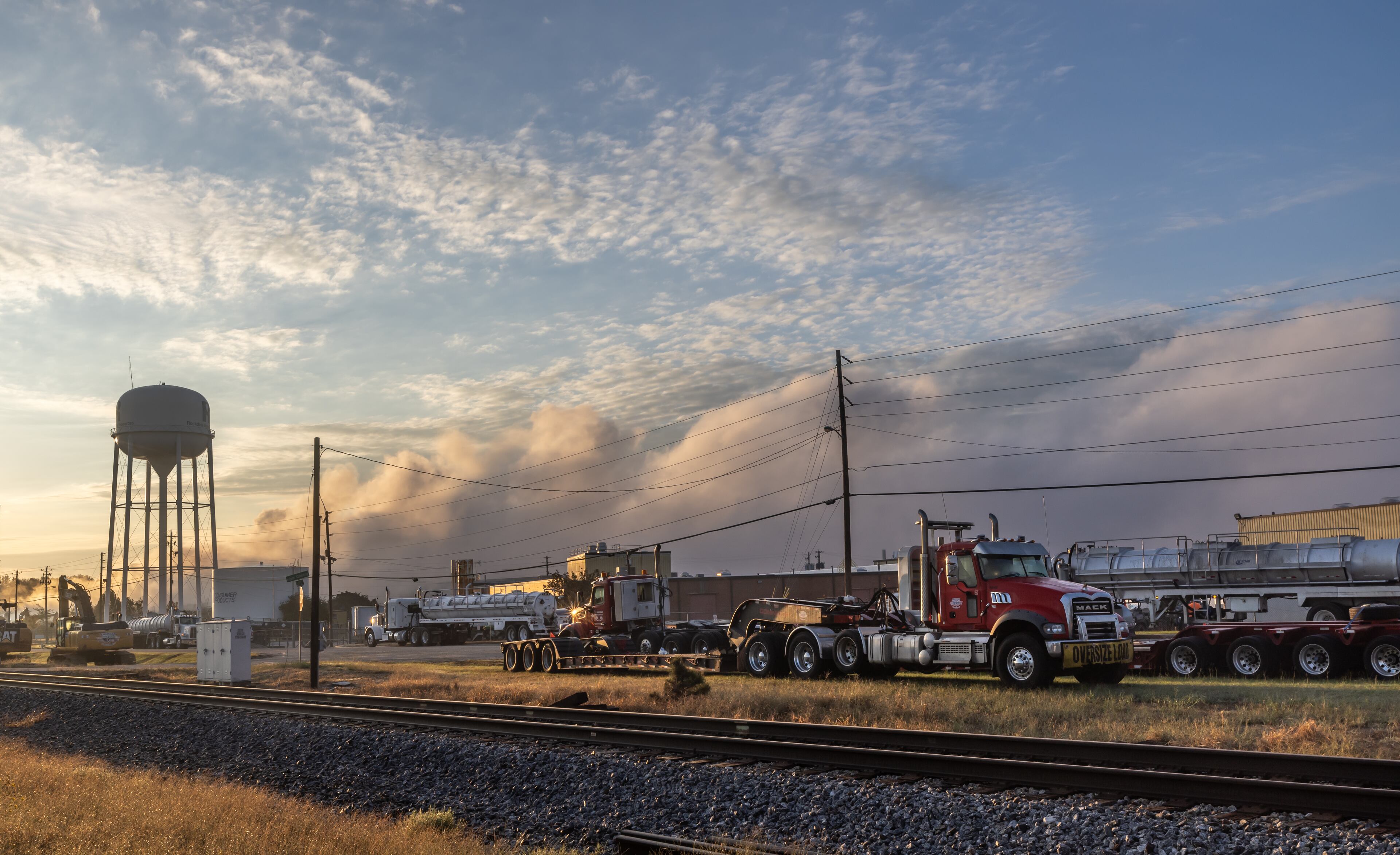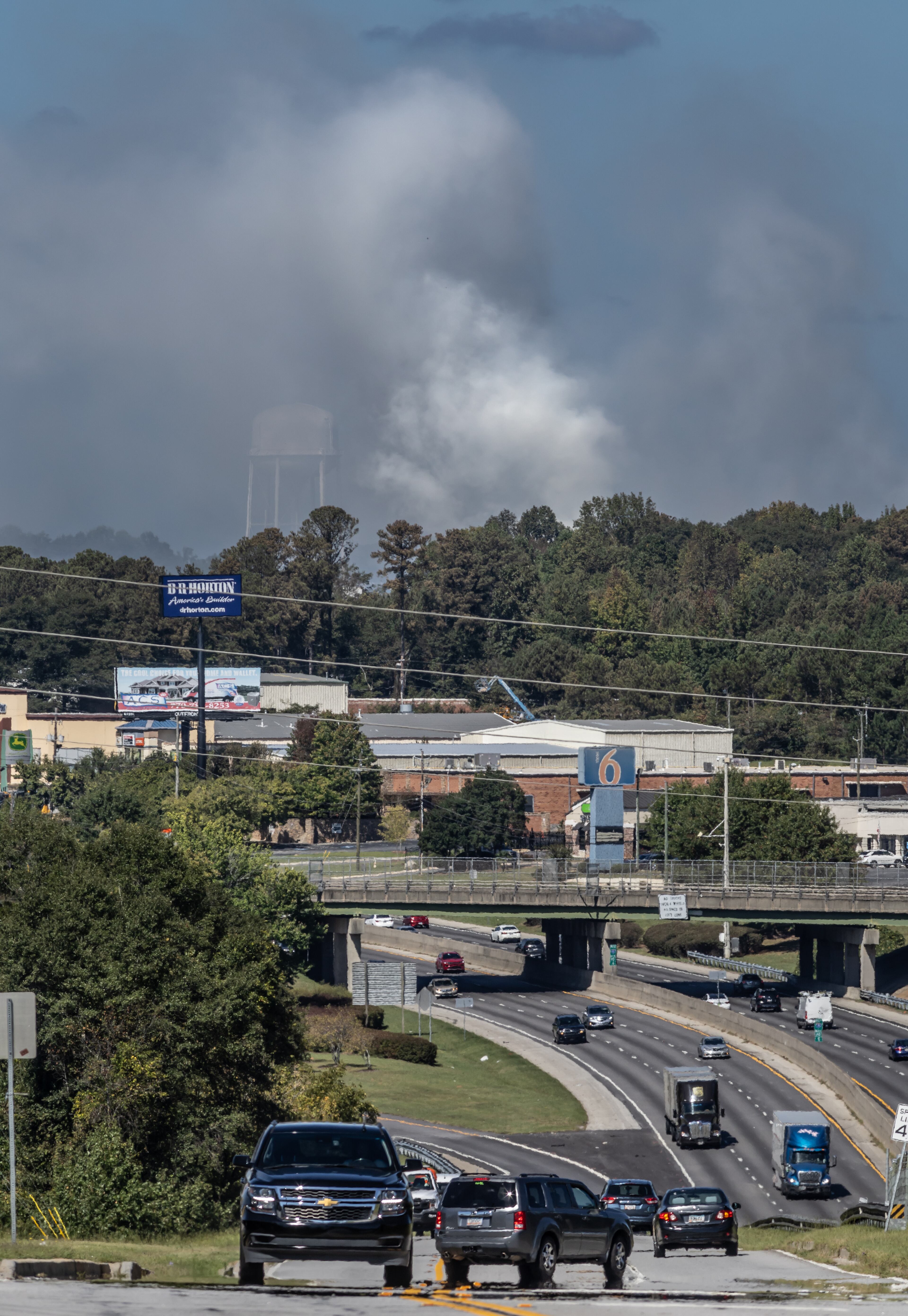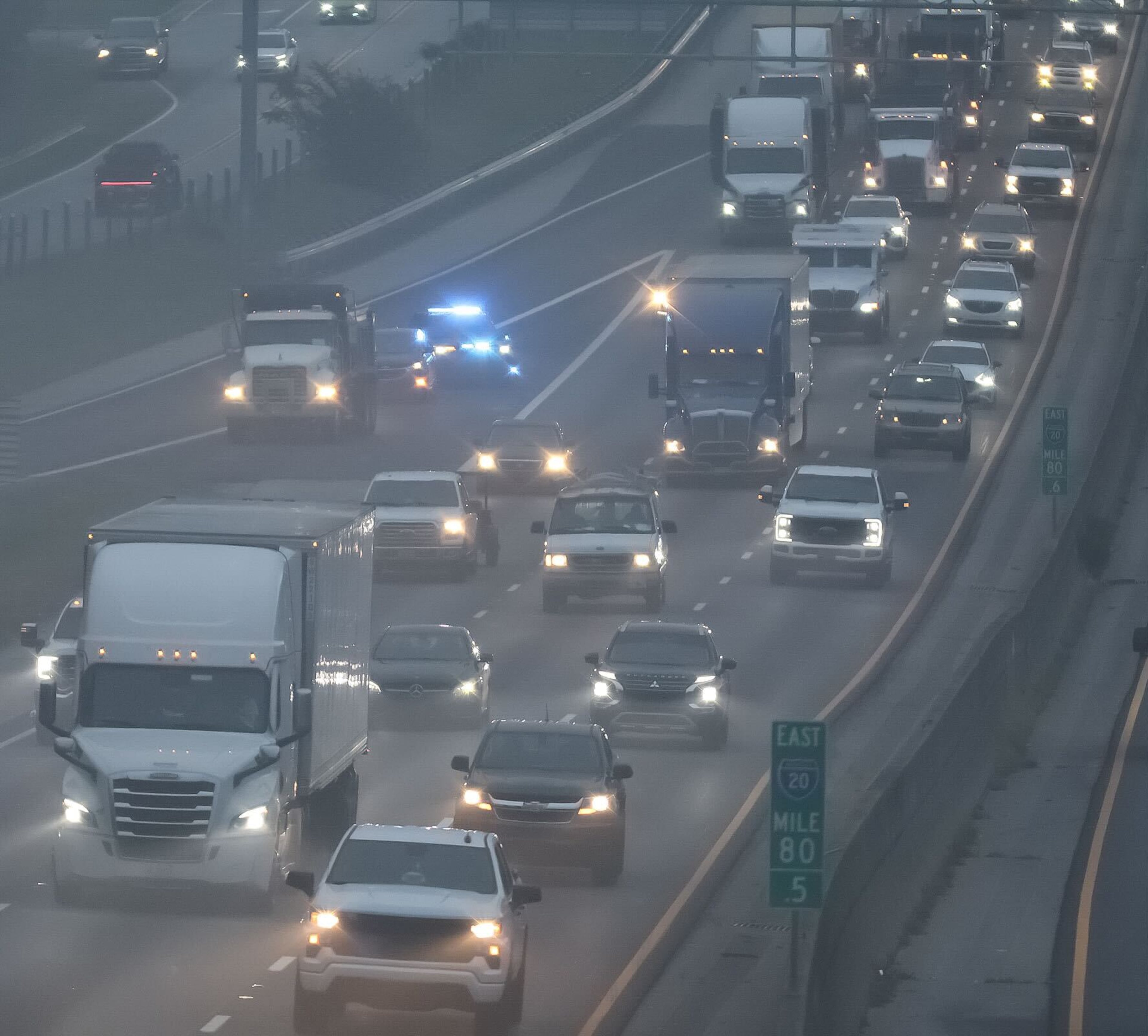Plant ‘crisis’ ongoing as shelter order lifted for most of Rockdale, officials say













































Rockdale County leaders said Monday they were still in the middle of crisis management as they tried to alleviate concerns from the public over the ongoing situation at a destroyed chemical plant, which led to nearby residents being advised to stay indoors every evening.
The nightly shelter-in-place advisory has now been lifted for most of the county, officials said Monday, except for a 2-mile radius surrounding the BioLab plant, which caught on fire Sept. 29 and sent a massive wall of smoke into the metro Atlanta sky.
Greg Harper, on-scene coordinator for the Environmental Protection Agency, said the reduction in area was based on the last 72 hours of air monitor data at the site and in the community. A map was released showing the exact boundaries of the shelter-in-place order, which will remain in effect from 7 p.m. until 7 a.m. Several businesses within that 2-mile radius will remain closed during the order.
Karey Baker said she was diagnosed with chemical exposure Sunday from breathing in the fumes near her house, which is just 2½ miles from the plant. Her daughter has pneumonia, and both women are worried about the lasting health impacts from the plume, which is still impacting a swath of Conyers eight days after the fire. Medical officials have stated the effects of the plume have been mild so far, but it can lead to breathing problems for some.
Even though Baker lives outside of the shelter-in-place order, she’s close enough to still be heeding it.
“That smoke is still in the air, and we still smell it in the mornings,” Baker said. “I’m really fearful that if something were an even more severe emergency in Rockdale County, the way this one was handled — they’re not going to know what to do.”
Baker said unless BioLab can show the community a sufficient emergency plan, the plant should be shut down. Many others have also called for the facility to be closed, including a group of protesters who gathered at the state Capitol on Sunday.
Rockdale Board of Commissioners Chairman Oz Nesbitt said it was too early to estimate the overall cost of the incident to the county and its businesses.
Acknowledging frustrations from residents over the lack of a timetable, Nesbitt said during a news conference Monday that it was premature to discuss when the situation will be fully resolved. Opening businesses was important, he said, but not as much as public safety. At least two frustrated business owners spoke out, saying they needed direction about how long things would take to reopen. Nesbitt said crews at the site were making progress but weren’t out of the woods yet.
“We cannot give you false hope or box us into a certain amount of time,” he said. “I would love to say that this will be open tomorrow or the next day. But we’re not at that point.”
County offices reopened Monday after having been closed since the fire, which was extinguished later the same day. But a plume of smoke has continuously risen from the rubble as the pool chemicals produced at the plant reacted with water used to contain the blaze. Environmental Protection Agency officials said they were monitoring the air for chlorine and hydrochloric acid, which will continue across the county. Sensitive areas will include schools and nursing homes.
The fire broke out when a malfunctioning sprinkler mixed with a water-reactive chemical, identified as pool shock, which is used to sanitize pools. After the blaze, Nesbitt said the roof and walls of the plant collapsed onto the product and that officials were still working on removing debris so they could then safely remove the “very hazardous chemicals.” That process was tedious but had already started, Nesbitt said.
“This is frustrating, this is irritating, but we have to go through this process,” Nesbitt acknowledged.
Nesbitt said additional debris from the roof was also blown Sunday into the yards of some residents, but it was found to be safe and free of asbestos. To help with cleanup, he said BioLab put together a debris response team that picked up the material at some of the homes. EPA officials urged residents to use gloves and place the debris in trash bags, or use a leaf blower.
In an updated statement Monday, BioLab said it created a community liaison to serve as a point of contact for residents. The company said it was also removing debris from public roads and areas. Debris pickup requests for residents on private property can be submitted to DebrisPickup@biolabinc.com.
BioLab also set up a call center that will be open 24 hours a day, officials said Tuesday. Residents and local businesses can call 678-301-2359 to speak with a representative.
“We continue to work diligently as part of the Unified Command response team, bolstered by the support of the technical specialists we have deployed, to address the situation at our site, and we have continued to make progress since our last update,” read a message posted on the company’s new website that was created to keep the public informed. “Just as we remain fully focused on our efforts onsite, we also continue to take steps to expand the support services we are offering the local community.”
For days, the smoke from the plant lingered over parts of southeastern metro Atlanta. On Friday, officials extended the nightly shelter-in-place recommendation, which was set to expire that day, so that it continued through the weekend.
Rockdale County Public Schools students are learning virtually Monday through Wednesday. Last week, students were on fall break. At 10 a.m. Tuesday, the county’s board will consider ratifying a resolution declaring a state of emergency due to the fire. Another resolution has been proposed to declare a local state of emergency due to the damage caused by Hurricane Helene.
Nesbitt said he is eagerly awaiting a call from the county fire chief saying the situation has been resolved. He previously called BioLab a “community partner,” which bothered Baker, she said. County officials gave the company tax breaks in 2019 for their expansion.
”It’s happened a few times. Tell me how this is a great community partner,” Baker said. “What’s it going to take? How many people are going to have to die, or how many evacuations, and how many businesses are going to have to suffer?”



